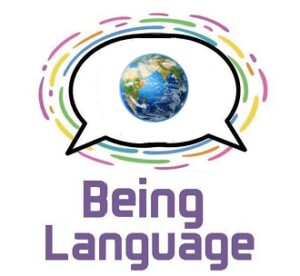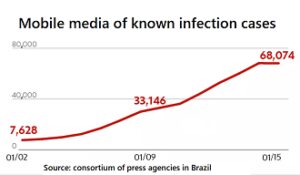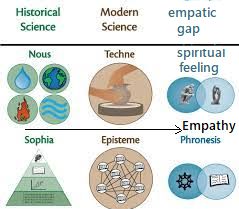
Arquivo para a ‘Information Science’ Categoria
Language and empathy
José Saramago expressed this about the opinion that people have on different subjects: “The problem is not that people have opinions, this is great. The problem is that they have opinions without knowing what they are talking about”, in times of social media it is very common to repeat illustrious strangers because they said an impact phrase, but when it is placed in an appropriate context or if one penetrates the subject in question, one can have a more sensible opinion.
on different subjects: “The problem is not that people have opinions, this is great. The problem is that they have opinions without knowing what they are talking about”, in times of social media it is very common to repeat illustrious strangers because they said an impact phrase, but when it is placed in an appropriate context or if one penetrates the subject in question, one can have a more sensible opinion.
Everything is controversial today and in a way almost everything has become mere opinion, the doxa of the Greeks, in this context the problem of language is extrapolated and empathy is increasingly rare in everyday language, if the problem at the origin of modern society in classical antiquity was sophistry, everything was argued just to please the ruling power, the problem today is to see this disseminated in everyday language, care with language, respect for others and respectful listening must be part of empathic language.
It is not just central politics that has deteriorated, or democracy that has gone into crisis, the choices of savior leaders of the homeland, the little discussion of the de facto problems that affect the population, in full pandemic expansion little is said about effective measures against it. , just to give a serious example, the whole problem seems to be the vaccination of children, which is undoubtedly urgent, but everyone has several cases of family or close infection in the neighborhoods where they live.
Re-educating everyday language, reintroducing respect for any citizen, of any race, color or religion, should be a common effort to improve social empathy.
Even in religious language, previously extremely respectful and loving, a more separatist and isolationist conception seems to evolve where the different is isolated and frowned upon.
It is necessary to find space, time and place where the first truths can be spoken, where the original cultures can manifest and be heard.
In many cultures, religions and theories there is a central node there where the deepest truths are spoken.
The biblical passage in which Jesus reveals who he really is and what he came to should be the central point of analysis of his language and his mission, went to Nazareth, the city where he was raised and could be seen as an ordinary person, an empathic attitude, going the synagogue on the Sabbath day they gave the book of the prophet Isaiah (Is 61) and there he read: “The Spirit of the Lord is upon me, for he has anointed me to preach good news to the poor: he has sent me to proclaim the deliverance of the prisoners and, for the blind, the recovery of sight; to give freedom to the oppressed, he sent me to proclaim a year of favor from the Lord”, closed the book and then surprised everyone by saying: “Today this passage of Scripture that you have just heard has been fulfilled” (Lk 1:14). -21) (In the photo the signature of the prophet Isaiah, National Geographic).
Verbal, mixed and mystical language
Verbal language is one in which we find only words (it can be primary, secondary or written orality), while non-verbal language involves gestures, visual signs, images, figures, drawings, photos, colors and even music, but communication can be realized beyond the gesture and then becomes a mystical communication.
primary, secondary or written orality), while non-verbal language involves gestures, visual signs, images, figures, drawings, photos, colors and even music, but communication can be realized beyond the gesture and then becomes a mystical communication.
It is not specific to religions, close people, lovers and even children can communicate with this perfection without the exclusive use of verbal or written language, it is beyond autosuggestion involves the theme that we develop further behind empathy, the vigor of a loving relationship or simply a great opening of the soul.
But the mystical language to make itself revealed to many and to be understood uses mythical resources, figures of speech, parables and even poetry, as Heidegger already thought who considered it an “other function” of language, the verses are rich in metaphors. , symbols and stories such as the passage of the Samaritan who helps a person who was robbed and attacked on the road to explain that helping the Other, mercy with those who suffer and helping is always a divine “will” for man.
However, it happens that many passages are read and analyzed out of context or out of the hermeneutic meaning of their realization, if in the past several linguistic resources were needed to read mystical documents, among them the Bible, the Quran or the book of Vedas, it does not mean that they can be read without the necessary hermeneutics.
Also updating them just to make political use, whatever the ideological tendency that makes it is a suspect hermeneutic because it depends on a certain historical conception, and we know that the sacred text, except for its contextual reading, must refer to a timeless and divine reality. aspatial (although the term does not exist), but considering the earthly life of everyone who reads it, it is on this that a good hermeneutic must be based.
The Bible does not mean anything other than what was written from a verbal word, the Christian gospels represent a review and a re-reading of the facts and verbal accounts of the early times of Christians that began with the public life of Jesus, period of domination of the Roman Empire and in which, besides him, many others claimed to be prophets.
The mystical language finds correspondence when a certain soul is in tune with the “divine will”, in the Christian saying, attentive to the Holy Spirit and having a special grace for this, which is very different from common influencers in our days due to the media powers and to the appeals to our human needs, one must be attentive to the divine, of course this is for those who believe, although also a perfect non-verbal communication can perfectly happen between those who do not believe, but it will be devoid of any divine revelation.
Language, speaking and native culture
In the work of Heidegger: Hölderlin and the essence of poetry,  read in Heidegger (1992) speaks of the essence of poetry as a type of primordial language, an original speech that precedes and makes possible the common language, the communication, this refers to an unprecedented fusion of horizons in language and language, classically defines language as: “it is an organized set of elements (sounds and gestures) that enable the communication of a given nation or culture”, while language would encompass a broader set that includes the ability of human beings to develop and understand the language, as if it were possible to dissociate it from contexts, cultures and forms of communication linked to culture.
read in Heidegger (1992) speaks of the essence of poetry as a type of primordial language, an original speech that precedes and makes possible the common language, the communication, this refers to an unprecedented fusion of horizons in language and language, classically defines language as: “it is an organized set of elements (sounds and gestures) that enable the communication of a given nation or culture”, while language would encompass a broader set that includes the ability of human beings to develop and understand the language, as if it were possible to dissociate it from contexts, cultures and forms of communication linked to culture.
The common language in which a certain original culture is communicated, keeps its own forms of a linguistic code that is necessary for each original language and develops in a creative way in order to preserve it, this speech (or word) is said to be that one. who names the gods, and does so to respond to a cultural appeal.
If in the past narratives included myths, symbols and poetic hooks to connect the narrative, today it is no different, there is always in speech some belief and some fantasy, without which poetic language would be a mere exercise in rhetoric, and it is not, and this appeal to fantasy, imagination and the transcendent is part of the human and the divine.
Wanting all speech to be pragmatic and objective is to reduce it to the context of pure formal logic, scientific exercise also often needs some exercise in the beyond, in the imagination to find answers that are not just there as a logical equation.
It is not pure daydreaming, beliefs and imaginaries have always been part of human history, it is a just desire to go further, to seek higher flights and to imagine as possible something beyond the boring and heavy day to day, even though it may contain joys. and flavors, the threshold of openness to different original cultures cannot be linked only to objective and simple realism.
In the photo above, a syncretic church built in Kazan, started in 1992, therefore, in the post-Soviet period, capital of Tatarstan (Russian Republic, but with a totally different culture) where, even with the predominance of Islam followed by the Orthodox Church, it is at the same time a symbol of resistance to the Russian linguistic complex and capable of building a work of such great significance where different religions can express themselves, an eclectic work by the architect Ildar Khanov.
HEIDEGGER, M. (1992) Arte y poesía. Argentina, Buenos Aires: Fondo de Cultura Económica.
Truth and language
Is it possible to really speak? or to ask a more contemporary question, is it possible to deny the truth without falling into relativism? Only the logical truth that comes from Parmenides “being is and non-being is not”, was expressed until very recently as the only truth, but it is the foundation of positivism and dualistic logic, the idea of considering historicity and the hermeneutic circularity places subject and object within a relationship with language.
question, is it possible to deny the truth without falling into relativism? Only the logical truth that comes from Parmenides “being is and non-being is not”, was expressed until very recently as the only truth, but it is the foundation of positivism and dualistic logic, the idea of considering historicity and the hermeneutic circularity places subject and object within a relationship with language.
In this scope of the language of language, truth is re-signified, no longer conceived as unique, as a faithful description, and starting to be seen as a partial, creative but limited redescription of things, as a possible interpretation in a given context and cultural situation determination. , for this it is necessary to understand language as something prior to everyday language, what Heidegger called attention to in Hölderlin’s poetics as the essence of poetry as a type of primordial language, an originary speech that precedes and makes possible the common language, the Communication.
How then is it possible to speak of the truth? It is only possible to speak of the truth taking into account the historicity and hermeneutic circularity of subject and object, which are within the scope of language. Thus, the truth is re-signified, no longer conceived as unique, as a faithful description, starting to be seen as a partial, creative and limited redescription of things, as an interpretation among other possible ones. One possibility of speaking in truth is through language. But for that, it is necessary to resort to an understanding of language that is prior to the language of everyday life, of communication. In Hölderlin and the Essence of Poetry, Heidegger (1992, p. 125-148) speaks of the essence of poetry as a type of primordial language, an originary speech that precedes and makes possible the common language, the communication;
Since language is the mediation of our relationship with being, it is what establishes this relationship, more clearly what is said in Heidegger: “where does man assume the requirement to enter the essence of something? Man can only assume this demand from where he receives it. It receives it in the appeal of language … it is language that, first and ultimately, beckons us to the essence of something” (HEIDEGGER, 2002, P. 167-168).
Thus, the truth must be understood in the context of the linguistic turn (or reversal), the contemporary rediscovery of the importance of language and it cannot be separated from the original historicity, the one that refers to the culture of the peoples and religions of the past and the present.
HEIDEGGER, M. (2002). Ensaios e leituras (Essays and lectures). Brazil, Petrópolis: ed. Vozes.
Covid Brazil: Pressured health system and increase
The increase recorded in the first weeks of January in Brazil in Covid cases, with a predominance of the ômicron variant, is very high and there is no tendency to stabilize, the health system is pressured by the increase in hospitalizations and the presence of the H3N2 flu that has also appeared , it’s usually only expected at the beginning of winter around April and May, but this year it came earlier.
cases, with a predominance of the ômicron variant, is very high and there is no tendency to stabilize, the health system is pressured by the increase in hospitalizations and the presence of the H3N2 flu that has also appeared , it’s usually only expected at the beginning of winter around April and May, but this year it came earlier.
The numbers are uncertain, but there is a significant increase (see graph), there is little testing and a crash in the Ministry of Health data that drags on for more than a month, this jeopardizes the adoption of policy and the effective control of the pandemic, as explained to the press the infectologist and researcher at Fiocruz: “We cannot plan the opening of new hospital services, testing centers, opening of new beds and understand the regions where the impact of the new variant is greater” and the numbers are expected to increase in February.
It is a fact that the infection of this variant is less serious, but it is not certain that this would be an indication of the end of the pandemic and care should be maintained, the end-of-year parties and the release of public events, there is already some setback in these measures. , were vectors of propagation of the variant that is more infectious than the previous ones.
Brazilian neuroscientist Miguel Nicolelis denied that the ômicron variant could be the end of the pandemic, stressing that mutations are probabilistically chaotic and it is not possible to predict the next variant or some point of linear weakening of the virus, it is likely that we will still have to live with it. for a long time, and the neuroscientist warns what is already happening in England and the United States where the health system can collapse at any moment, once it is under pressure. and warns that it is possible to reach a point of chronic Covid, this is a state in which the hospital system can no longer handle the volume of cases that happen and with palliative treatments only without being able to effectively treat the disease.
With this weekend’s numbers in Brazil, it reached close to 50,000 daily cases, the expectation is to grow until the end of February and the already pressured health system could collapse, while the authorities monitor without really data. valid and reliable data from the pandemic.
Vaccination of children began in Brazil, at the age of 5 to 11 years, with the Comirnaty vaccine (Pfizer/BioNTech) but the number of doses available is uncertain, the health secretariats have opened registration for scheduling that, in addition to avoiding agglomerations, can do a forecast as doses are available
Empathy: from water to wine
After clarified pathological situations, where empathy is just an instrumentation or a disguise for actions that do not contemplate the Suffering of the Other, we can affirm situations in which it is really effective and can change the situation practically as a miracle, not only in the extraordinary sense but also with high probability.
instrumentation or a disguise for actions that do not contemplate the Suffering of the Other, we can affirm situations in which it is really effective and can change the situation practically as a miracle, not only in the extraordinary sense but also with high probability.
We have already said that outside the ideological, cultural and social constraints, human nature destined to live in a collective situation tends to empathize for a good social life, it is enough to observe children when they are not yet contaminated by aggressive or toxic environments, to use a very current term.
Also social situations: work environments, neighbourhoods, small communities there is always a tendency where empathy reigns (or Love in a sense that is now forgotten) the greater tendency is that phronesis (in the sense that today they call emotional intelligence) and empathy, and this is not new, just an update is needed.
Many environments can change from water to wine if they are fully enriched and purified by empathy, there is always a greater tendency towards solidarity and tolerance than conflict and personal or group selfishness, in environments that are not enriched by a spirituality. it also weakens and tends not to prosper, because there is social pressure from outside where the environment is one of conflict and polarization.
Pandemic suffering was a great opportunity to recognize the Suffering of others, the pain of the Other, or just the face of the Other and its inclinations and concepts, what can be observed contextually is that conflicts increased and the opportunity was not properly seized, but not invalidity of joint efforts in regions and situations.
There are examples of these efforts in many places, right now the flooding situation in Bahia is a new opportunity in which many communities have joined the scourge of the region, donations and aid have come from various places in Brazil, although the central authorities have been somewhat negligent.
These are choices that we make of actions, habits and that become a “social character” if we change from water to wine, it is possible, as in that biblical passage where the wine was missing at the party, and Jesus being present receives the mother’s request to to intervene and his first public miracle happens only to give wine and improve the joy of that party, he orders three vats of 100 liters each to be filled with wine and then asks them to take it to the master of the party to taste (Jn 2,7), and he says the best wine was left for last.
So it is not the end we are living, but the beginning of a new reality, even if empathy has not arrived after so much suffering, it will come and a new clearing will open, like that of the paralytic’s passage through the ceiling that reaches Jesus to heal him. Rather, He heals him of his sins (Mk 1:5) so that he may have a more “empathetic” soul.
Empathy and spirituality
We did not point out in the previous post that phronesis is not a moral virtue, but an intellectual virtue in Aristotle’s theory, so empathy can be according to the feeling of the phronesis, a better component according to the feeling of the phronesis, the best example to explain this is that of akrasia, or the feeling and phronosis of a psychopath.
a moral virtue, but an intellectual virtue in Aristotle’s theory, so empathy can be according to the feeling of the phronesis, a better component according to the feeling of the phronesis, the best example to explain this is that of akrasia, or the feeling and phronosis of a psychopath.
Although akrasia can be projected literally because it “has no command over itself”, it is described in Plato’s speech in Protagoras, in fact it is a situation of psychopathy where he is aware of a certain actions, but does not have exactly the same a normal person’s feeling towards someone.
Something that is wrong in this counter-argument to explain phronesis is that the desire to alleviate the pain of the other in the face of suffering must be somehow protected, however it does not prevent the psychopath from cultivating some feeling for the other person’s situation and makes of attitudes in the sense of their habits and that are not defined in terms of such we have already said that this comes from thoughts become actions), if we include people who have knowledge or mercy for the suffering of others, then it can be explained.
So it is, therefore, the moral or ethical attitude, although it is, but some attitude of spiritual virtue, that is, the practice of resistance is also only in an action that is not oriented towards a. willingness to act in a moral way that can provide the means to discern about suffering along with Empathy, so one has to expand on that of moral attitudes by Aristotle.
To people who cannot be basic, but can also be able to offer in basic moral virtues, and people who can be basic, but can also be complementary, but can offer a moral virtue, many people who are basic, but who can complement the lack of a virtue. attitude your action, and this is impossible without some exercise in complete to become a habit to feel the Suffering of Others, this exercise that becomes a habit is called here Spirituality.
The phronesis cannot be exercised without basic moral virtues and thus cannot be initiated without empathy, it can be admitted that a psychopath even has empathy, many are charismatic and can influence many people, but he will lack a basic moral virtue that complements your action, and this is impossible without some an exercise to become a habit the full empathic attitude of feeling the suffering of others, this exercise that becomes a habit is called here Spirituality.
While it is not a habit, it can be an exercise in asceticism, a simulation or simply a disguise that at some point will be unveiled.
It is good to point out that there can be asceticism (elevation of the spirit partially) without true spirituality, I call it using Peter Sloterdijk’s term of “despiritualized asceticism”, that is, without a deep root that leads to the broad knowledge of what pain is. of the Other, if we want to give a name to an empathetic phronesis.
Spirituality is, therefore, an exercise that leads to an asceticism, but what is asceticism does not depend only on the belief of each one, but what during life becomes habit and character, those who do not have it can practice it for a long time. a few days, or even a few years, but without deep root it will soon leave it, like losing weight, dieting, diets and other attempts at habits that are not always maintained, to make them life they must integrate our character, our personality.
Empathy and social interaction
Although in some areas such as administration and health there are already works on empathy as an improvement in social relationships, it is far from clear that it is not just an attitude of sympathy, emotional contagion or a caring relationship (Pedersen, 2010), it is not, therefore, a “tactic” of building relationships.
are already works on empathy as an improvement in social relationships, it is far from clear that it is not just an attitude of sympathy, emotional contagion or a caring relationship (Pedersen, 2010), it is not, therefore, a “tactic” of building relationships.
We have already outlined the reasoning that goes from thought to character (Meryl Streep’s phrase in the movie “The Iron Lady”) and must therefore be an exercise in ethical character.
The concept of phronesis (phronesis) translated as “practical wisdom” or “prudence” is developed in Aristotle, in book V of “Ethics to Nicomache”, is this understanding of the empathic and wise being in Aristotle correct? And if so, does being wise in practical matters mean better understanding the phenomenon of empathy?
Along with phronesis in the Nicomachean Ethics are other virtues such as areté (the excellence or supreme virtue) and Aristotle will associate it with five different forms when it comes to human activities, we could say social: the episteme (organized scientific knowledge), the techne (technical knowledge), phronesis (practical wisdom) and sophia (philosophical knowledge) and nous (intellectual “flanks”), of course all these concepts must be contextualized in the contemporary world.
Practical wisdom as Aristotle characterizes it is a kind of knowledge of how to act in practical situations (remember words become actions and actions become habits and define character), but he also speaks of technical expertise, in case that the objective of the activity must have some knowledge beforehand to carry it out, the idea that intuition or inspiration (nous) without technical knowledge is enough is useless.
Empathy is thus a type of discernment, a way of seeing what is happening in the world around us with other human beings, in this sense it is necessary to have wisdom (sophia) and to pay attention to different interpreters who are in a deeper way thematizing itself, maybe the word philosophy is worn out, so just sophia.
Contemporary philosophy Martha Nussbaum has shown how the Aristotelian notion of wisdom rests on understanding emotions as containing knowledge about the world that we share with other people, and phronesis is not devoid of feeling, on the contrary it helps the “sage” to understand and judge the person in a given situation.
Because of the ethical context, we are led to place empathy in the context of Aristotelian moral philosophy, which is a mistake, as phronesis is more appropriate, however, another mistake can happen to consider only as an “intellectual” virtue and disregard subjective aspects (including spiritual ones) that empathy should be placed.
Empathy is then a component of “feeling” related to phronesis, although it is a fact that some philosophers deny that empathy is essentially a feeling (Coplan, Goldie, 2011), we recall again that thoughts become words, these actions and then habits and when inserted in the character are already part of the “feelings”.
We resolved this dispute, it is not that simple, it is true, understanding that while they are not habits they need exercise and then inserted into the character, they are feelings or subjectivities (the subject’s own), but it is clear that it is not a natural attitude, although empathy In other words, “training” is needed.
Thus we detect in Aristotle a gap between practical wisdom and sophia, we would say a healthy spirituality or a capacity for interiorization.
References:
Coplan, A., and P. Goldie. 2011. Introduction. In Empathy: Philosophical and psychological perspectives, ed. A. Coplan, and P. Goldie. Oxford: Oxford University Press.
Pedersen, R. 2010. Empathy in medicine: A philosophical hermeneutic reflection. Oslo: University of Oslo, Faculty of Medicine.
Empathy and phronesis
Frônesis (phrónesis, from ancient Greek: φρόνησις), in Aristotle’s Nicomachean Ethics, book IV, is distinguished from both theory and practice because it is a virtue of the wisdom of practical thinking, however a modern adaptation of Hans -Georg Gadamer is situated between logos and ethos, this relationship can thus bring “theoretical” love closer to an empathic practical action.
Nicomachean Ethics, book IV, is distinguished from both theory and practice because it is a virtue of the wisdom of practical thinking, however a modern adaptation of Hans -Georg Gadamer is situated between logos and ethos, this relationship can thus bring “theoretical” love closer to an empathic practical action.
Thus, phronesis is inserted in human actions as phenomena through a hermeneutic examination of opinions, not only to reveal the immutable principles of the causes of this action, but above all to understand that from the mere opinion (the doxa) of the Other, it is possible to help it through empathy to reach knowledge (episteme).
It works as a true action of attraction that leads the Other to reflect. within the hermeneutic circle, it is a matter of allowing a reading of the Other’s preconceptions and paying attention to one’s own, so the actions that result from it can be more empathic, explaining in a phrectic (practical) way: reading what the Other actually wants and think.
This knowledge leads to a new episteme (theoretical conception of new horizons) in which it is possible to think of a joint or at least convergent action, as we have said before, empathy is an originally natural relationship, while disempathy (it is different from the antipathy that is opposed to sympathy) is the rejection of the Other, rather something that has become naturalized, due to hermetic ideologies and preconceptions that are impossible to reread.
The real law of attraction is empathy, since it can reinforce positive, collaborative and socially collective actions, while simple opposition leads to the repulsion of the Other and the creation of non-converging poles of opinion (doxa) and knowledge (episteme). and non-humans, it is not about simple logic, but onto-logic, the logic of Being.
Because this has become so widespread and widespread is simple, a strong non-humanist system of thought developed with the aim of power and enrichment, not only colonizing and xenophobic, but above all non-ontological, unbecoming of being.
The idea of simple rejection may seem natural, however it can lead to another system of domination polarized and structurally authoritarian and thus non-empathetic and non-frenetic, again simple theories that in practice prove to be disastrous.
Pandemic chaos and structural denialism
The restriction measures should have continued, but what is observed is a release of agglomerations and the absence of clear protocols, worldwide there is an increase in chaos, approaching 3 million daily, in the United Kingdom there is an explosion of cases ( see graphic), studies from France have revealed 46 variants, omicron is still predominant, but there is a risk of new mutations if the pandemic is not contained and the only weapon available is vaccination, however, strict sanitary measures should have already been taken, little by little flights, restaurants and agglomerations are banned again, but without the necessary force of public authorities.
observed is a release of agglomerations and the absence of clear protocols, worldwide there is an increase in chaos, approaching 3 million daily, in the United Kingdom there is an explosion of cases ( see graphic), studies from France have revealed 46 variants, omicron is still predominant, but there is a risk of new mutations if the pandemic is not contained and the only weapon available is vaccination, however, strict sanitary measures should have already been taken, little by little flights, restaurants and agglomerations are banned again, but without the necessary force of public authorities.
It is no different in Brazil, where more than 56 thousand hospitalizations were reached in the city of São Paulo alone, but the public discourse is that they are just people who have not taken the vaccine or that the cases are not that serious, but the WHO itself warns for the seriousness of omicron, the first immediate effect being to put the health system in collapse, in São Paulo ABLOS (Brazilian Association of Satellite Storers) will ask shopping malls to reduce their opening hours due to lack of employees due to covid.
A study by the University of Washington indicates that Brazil could reach one million daily cases, in the short term, by the end of January, the H3N2 influenza is advancing, however, most cases are still covid 19 with the variant omicron. China stockpiles food is not stated that it is just for the omicron issue or there is something else.
Indigenous leader Ailton Krenak, from the people of the devastated region of the Doce River, said in an interview on TVT’s Bom para Todos program that talking about a new normal is very close to denial, what needs to be changed and does not mean that we think the state is good. previous of carelessness about life and nature, it is nature itself that drives us to a change of habits, to a new way of living, and if we do not learn quickly, we will be stuck with new pandemics and cyclical crises.
That’s how it is, there is no way to change, says the conformist discourse, or worse, the one who wants to devastate lives to return to a normality that is still impossible not only due to the pandemic, but now also due to a suffered social reality and with blackouts and restructuring difficulties, such as Indian leader Krenak alerts there is no new normal, reality must be dealt with, however harsh it may be.
That’s how it is, there is no way to change, says the conformist discourse, or worse, the one who wants to devastate lives to return to a normality that is still impossible not only due to the pandemic, but now also due to a suffered social reality and with blackouts and restructuring difficulties, such as Krenak alerts there is no new normal, reality must be dealt with, however harsh it may be.
Even with the absence of clear data, since the end of December the Ministry of Health has been experiencing a data blackout, caused by hackers, but it has not been able to restructure itself, testing and control in collective activities has also been smoothed, just go to any social event , to restaurants or churches, there is no longer temperature measurement and the necessary distance observations, this is what we call here structural negationism.
Some measure is expected, but from the top down, it seems an intentional policy, there is a lack of control in actions and a relativization of the pandemic severity.

